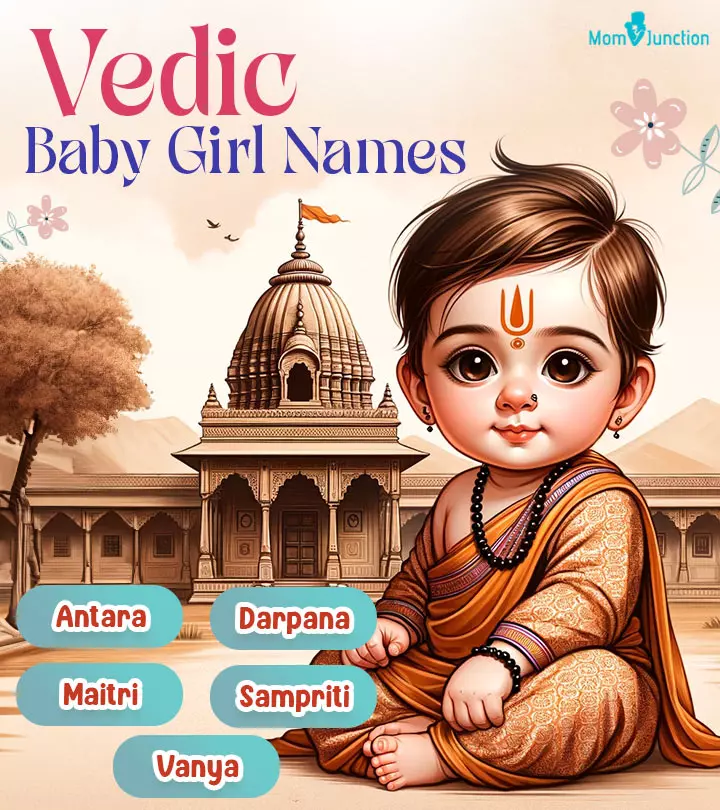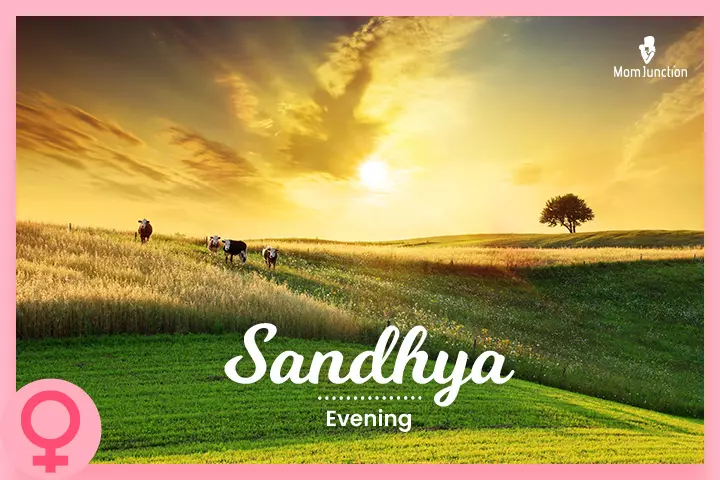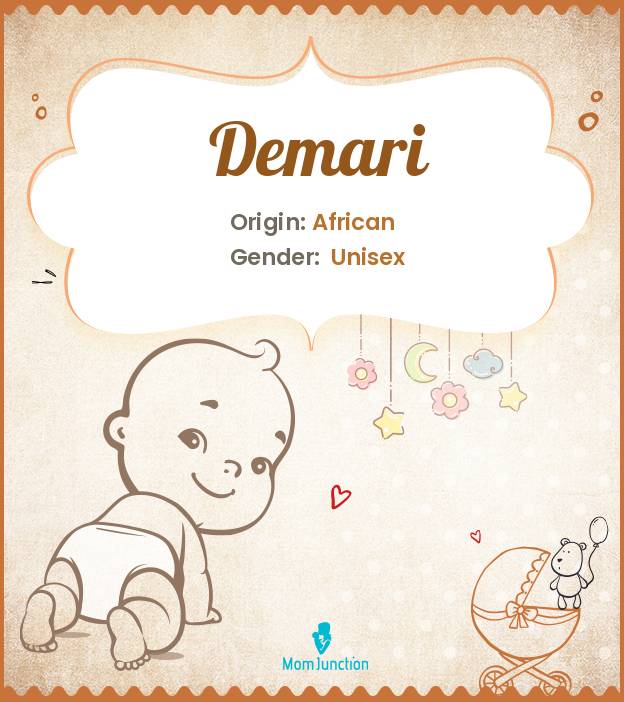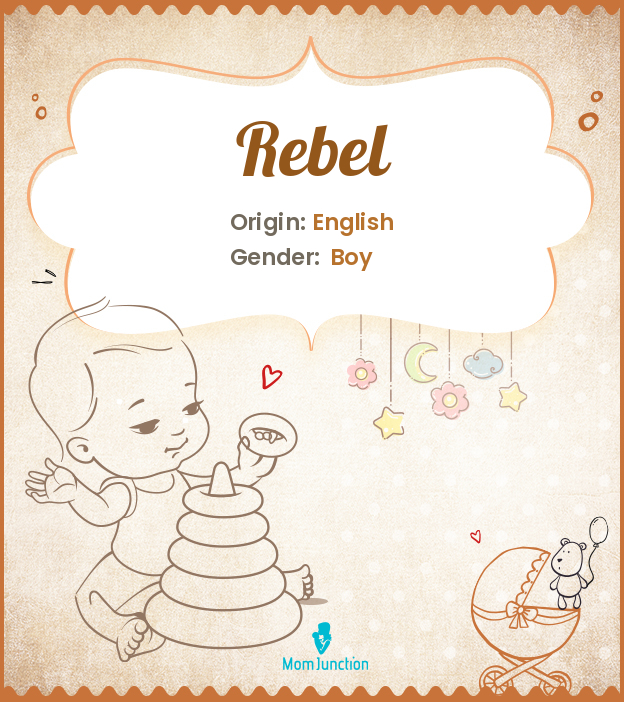
Image: Created with Dall·E
When naming the little angel of the family, most Indians think about Vedic baby girl names. Indians have emanated their philosophies and culture from the Vedas, a large and ancient body of religious texts. The Vedas comprise scriptures, religious instructions, poems, and hymns, primarily written in Sanskrit. Therefore, these beautiful Indian girl names derived from the Vedas have a spiritual and enlightening intent with a deep meaning. Vedic names hold deep cultural and spiritual meanings that reflect the values of Hindu philosophy. Choosing a name from the Vedas connects to tradition and carries the hope that the name’s values will guide the child’s life. If you are a new parent and have been searching for a name with rich heritage and traditional meaning for your little one, scroll through this post to check out a list of modern Hindu girl names.
List Of Popular Vedic Girl Names, With Meanings
Vedic astrologer Visti Larsen suggests, “Choosing a Vedic name connects the child to a form of divinity. Families following a Vedic faith are encouraged to select a name that resonates with the individual’s familial or personal deity.” So, from the below list, which name resonates with yours?
1. Aakriti
Aakriti in Sanskrit means ‘form,’ ‘silhouette,’ or, at times, the state of a particular matter. In Hindu philosophy, Aakriti can symbolize divine creation or the form of an individual (1). Despite its antiquity, the name is popular in present times and has a modern appeal to it.
2. Aditi
Aditi is a common name for females in India. The Sanskrit name means ‘boundless’ or ‘limitless.’ In Hindu mythology, Goddess Aditi is the personification of the endless universe and its associated powers. Aditi is described as a divine mother created from the mind, with the purpose of consuming the blood of the Andhaka demons, according to the Matsya Purāṇa. Aditi also refers to one of the sixteen celestial ladies in Hindu mythology (1).
3. Ahalya
In Sanskrit, Ahalya means the one who has impeccable beauty and ‘unploughed’ or ‘unfurrowed’. In Ramayana, Lord Brahma revealed to Lord Indra how he obtained beauty from all creation to form Ahalya. According to the Hindu Puranas, Ahalya was a princess from the Puru dynasty. She turned to stone as a result of a curse from her husband, Gautama (1).
4. Ahana
Ahana is a popular name for girls in Sanskrit. Ahana means ‘dawn.’ The name can also mean someone who is born during the day. This name is commonly used in Indian culture and carries a sense of purity, good omen, and new beginnings. Ahana Deol is the daughter of veteran actress and politician Hema Malini.
5. Akansha
This Sanskrit name for females means ‘wish,’ ‘desire,’ or ‘ambition.’ This name so beautifully captures the expression of desire that it is nothing short of poetic. In Hindu culture, the name reflects a positive and forward-looking outlook, as it is associated with the longing for good things or a meaningful future. Some variations of this name are Aakanksha and Aakansha.
6. Akshita
Akshita is a common name in Hindu households. It has multiple meanings in Sanskrit, including ‘limitless,’ ‘secure,’ or ‘saved.’ It also means ‘limitless’ or ‘wonder girl.’ The word is often part of mantras taught in the Vedas.
7. Ananya
Ananya in Sanskrit means ‘one who cannot be compared.’ The name is popular as it is meaningful and doesn’t sound dated. The name itself would inspire the bearer to do great deeds and stand out from the rest. In Hindu mythology, Ananya is also associated with Goddess Durga, representing a sense of divinity and strength.
8. Anindita
The name Anindita has its roots in ancient India. Derived from the Sanskrit language, it means one who is beautiful or virtuous. Anindita is often chanted in mantras and hymns and encapsulates the ideas of virtuousness.
9. Anisha
Anisha is an ancient Indian name for females. It can be split into two parts, ‘A’ and ‘Nisha,’ which means ‘without’ and ‘night,’ respectively. In other words, it means ‘everlasting flame.’ In Hinduism, Anisha is one of the names of Goddess Laxmi. Anishaa or Aneesha are the common variations of this name. In Vedantic philosophy, Anisha symbolizes a state of existence without a Lord, representing the autonomous divine Power, also called as ‘Will of Hari.’ This concept emphasizes independence in the spiritual realm, where divinity operates without external control or governance (1).
10. Anjali
Anjali is a highly popular name in the Hindu community. It means ‘divine offering’ in Sanskrit and is also the word for a hand gesture associated with Hindu traditions. Anjali Joseph is a British-Indian author whose novel Saraswati Park was critically acclaimed.
11. Antara
Antara in Sanskrit is an abstract concept that translates to ‘inner’ or ‘inside.’ It also means the mind or thoughts and beliefs. The word is often used as part of the classical music regime to categorize certain parts of compositions. Additionally, the term Antara is used in the Ramayaṇa to denote ‘inside walls,’ showcasing its varied contextual meanings in Sanskrit literature (1).
12. Anupama
Anupama is a female name, whereas its male form is Anupam. Both the forms mean ‘impeccable’ or ‘excellent.’ The name is easy to pronounce and remember. Pronounced as “Ah-noo-pah-mah,” it is a popular choice in Hindu culture, reflecting both spiritual and personal virtues.
13. Anuradha
Often transliterated as Anurada, this name originates in India. It is one of the names of Goddess Lakshmi or the Hindu goddess of good fortune. It also means ‘a bright star’ in Sanskrit.
14. Anushka

Image: IStock
Anushka is the Sanskrit word for ‘lightning,’ and also means ‘the first ray of sun.’ The name is popular in Hindu communities, while in Slavic cultures, Anushka is a diminutive form of Anna, meaning ‘grace’ or ‘favor’ as well, and is a common name in countries like Russia and Ukraine. The name blends elegance with cultural significance in both regions. A few common variations are Annushka and Anoushka. Anoushka Shankar is an Indian sitar player and singer who won countless awards in India and abroad.
15. Anasuya
Originating in India, Anasuya is a beautiful and unique name for females. The name is made up of two separate Sanskrit words, ‘Na’ and ‘Shuya,’ which mean ‘without’ and ‘jealousy,’ respectively. Anasuya, wife of Sage Atri and daughter of Devahuti and Prajapati Kardama, is a revered ascetic in Hinduism. Living a pious, austere life, she possesses miraculous powers, as described in the Ramayana.
16. Aparajita
Among Vedic names for baby girls, the name Aparajita is quite popular in India. It comes from the Sanskrit word ‘Aparajit,’ which means ‘who is unconquerable.’Thus, the name captures the heroic nature in a personified way. Aparajita is one of the Eleven Rudras mentioned in the religious text, Agni Puraṇa. In the Varaha Puraṇa, Aparajita is described as a beautiful maiden with black, curly hair and red lips (1).
17. Apurva
Apurva is suitable for boys and girls. It is a common name in Hindu culture and means ‘unique,’‘unprecedented,’ or ‘exquisite’ in Sanskrit. The name ‘Apurva’ can also be transliterated into ‘Apoorva,’ and it brings forth the bright and happy characteristic of the bearer.
18. Aradhna
Aradhna is a well-respected name associated with prayers and worship. In Sanskrit, Aradhna stands for ‘heartfelt prayer.’ The name is also commonly spelled as ‘Aradhana.’ Moreover, Aradhna refers to a certain worship routine or practice in the Hindu culture (1). As the Hindu culture emphasizes being devout, Aradhna is a perfect name for your baby girl.
19. Arpita
Arpita comes from the Sanskrit word Arpit meaning ‘donation’ or dedication.’ Being selfless and committing to a cause is highly praised in the scriptures. In Vastushastra (architecture), Arpita refers to a type of prasada where the floors are constructed adjacent to each other without any gaps in between. In the context of Hindu Purana and Itihasa (epic history), Arpita signifies the ‘fixation of one’s mind (1).’ Arpita sums these meanings in a short and beautiful name, perfect for your baby girl.
20. Arunima
Arunima is a beautiful name of Sanskrit origin popular across India. The name captures the beauty of the dreamy golden hour during dawn as the first light reaches the earth. Arunima is sometimes used to refer to the red hue similar to the one seen during sunrise.
21. Asha
Asha is a sweet and adorable name that means ‘hope.’ Asha can also mean ‘contentment’ or ‘happiness’ and has a positive tone to it. Asha Bhonsle would be the perfect bearer of the name, considering she is one of the most accomplished singers in India and the sister of Lata Mangeshkar.
22. Asmita
Asmita is the feminine form of the Hindu name Asmit or Ashmit. It means ‘pride’ or ‘dignity.’ When performing hymns during worship rituals, the shlokas (stanzas) often contain the word Asmita.
23. Atisha
Atisha is a name draped with holy and spiritual connotations. It means ‘well-being’ or ‘enlightening’ and is found in the Vedas and Vedic texts. Atisha is also found in mantras, capturing the theme of universal spiritual connectivity.
24. Avantika
Avantika in Sanskrit means the ‘first blossoming flower’ and refers to the fresh pulps during the spring season. Avantikapuri is the erstwhile name of Ujjain city in Madhya Pradesh, it used to be an important kingdom in the past. The princess of Ujjain was referred to as Avantika.
25. Avni
Avni is a concise word that means ‘the earth.’ Here, the earth is considered the mother. Another popular form of the name is Avneet, which is popular in Punjabi culture.
26. Banasmita
Banasmita is the combination of Sanskrit words Bana and smita. ‘Bana’ means forest or the wild, while Smita means ‘smile.’ When translated, it reads ‘lively like the forest.’ The name is poetic and describes the beauty of forest and nature. The name Banasmita is pronounced as Buh-nuh-smee-tuh, with emphasis on the second syllable.
27. Bhaswati
Bhaswati is a compound name with ‘Bhaskar,’ which means ‘the sun’ and ‘wati,’ a title used for females. The name Bhaswati captures the idea of divine radiance touching one’s soul. The Vedas encourage people to walk on the path of goodness and radiates it.
28. Chayanika
The female name Chayanika has a sophisticated sound to it. It means ‘chosen one’ or ‘the one at the helm’ and usually refers to leadership qualities. The name is highly popular in the eastern state of West Bengal in India.
29. Chitra
Chitra is a Sanskrit origin word with multiple meanings, most common ones being ‘ a picture’ or ‘bright.’The name is often joined with other words, and diminutives are formed, such as Chitrangada or Chitragupt, which are popular. The name Chitra is pronounced as Chi-trah, with a soft “ch” sound and emphasis on the first syllable. Variations of the name Chitra include Cheetra, Chithra, Chidtra, Chittra, Jitra, Jidtra, and Jittra.
30. Darpana
Darpana is the feminine form of the name Darpan, which means ‘mirror’. Though mirrors are often associated with narcissism, in this case, it is more of an association with self-reflection and staying on the moral path. Darpana is one of the symbolic attributes (āyudha) or accessories often associated with deities in Hindu iconography. In ancient times, mirrors were crafted from highly polished metal plates with intricate designs. Typically, the darpaṇa has a circular or oval shape and is attached to an ornate handle (1). As such, naming your child Darpana would be an amazing choice.
31. Darshana
Darshana is the feminine form of Darshan and has its origins in the Vedic texts. It is one of the common and traditional Hindu baby girl names. Darshana means ‘an auspicious visit’ and usually refers to the visit of the higher powers to humans. Usually, in mythology, sage and hermits go through meditation to receive the ‘Darshana’ of the deities.
32. Deepa

Image: IStock
Deepa is one of the most popular female names in India. The word Deepa means ‘light,’ especially ones made of clay in which oil is used. Deepas are lit on Diwali, also known as the festival of lights. The feminine variant is Dipa, while the masculine forms include Deep or Dip across various languages such as Hindi, Marathi, Punjabi, and Bengali.
33. Devastuti
Devastuti is an auspicious name associated with heavenly beings. ‘Deva’ in Sanskrit is the word for the pantheon of gods who look after humankind. ‘Stuti’ is the word that means ‘praise.’ So the name Devastitu can mean ‘praise for the Gods.’ It is also the name of certain hymns in the Vedas.
34. Dhrishita
The compound name, Dhrishita, is of Sanskrit origin formed by joining the words ‘Dhrishti’ and ‘Ishita.’ Dhsirthi means ‘vision’ or ‘sight’ and Ishita means protector. So when translated, Dhrishita means ‘one with good sight’ or ‘one who is prudent and wise.’
35. Dhrishti
In Sanskrit, Drishti stands for ‘sight.’ However, the name encompasses more than its meaning and can also mean enlightenment or comprehension. In Indian mythologies, the divine creatures were said to have ‘dur-drishti,’ meaning the ability to know what was going on across the universe. According to ancient religious texts, Drishti was the son of Kunti and the father of Nirvrti. He was also identified as a son of Bhajamana and, in another account, as the son of Bahyatha. His wives were Gandhari and Madri, as mentioned in ancient texts (1).
36. Dipannita
Dipannita is an extension of the name ‘Deepa’ which means ‘light.’ Dipannita is a feminine form and personification of the concept of light and means ‘one who radiates divine light.’ In Hindu culture, Kali Puja, also called Shyama Puja, is a Hindu festival dedicated to Goddess Kali, celebrated on Dipannita Amavasya (new moon) in the Ashwayuja or Kartika months. In Bengal, Lakshmi is worshipped during Dipanwita or Dipannita Lakshmi Puja, observed five days after Vijaya Dashami and on Deepavali eve, symbolizing prosperity and Alakshmi’s departure. Thus, the name Dipannita beautifully reflects the festival’s theme of light and spiritual illumination.
37. Disha
Disha is a beautiful name of Vedic origin that is popular in north and south India. Disha in Sanskrit means ‘direction.’ Disha Patani is a Bollywood actress known for her action movies. In ancient Hindu texts, Disha was the name of the consort of Bhima. It also refers to a river in the Mahabharata and represents the number 10 in the Sanskrit word-numeral system (1).
38. Divya
Divya is a short and sweet name that can be used for boys and girls. It comes from Sanskrit and means ‘radiance’ or ‘divine brilliance.’ Compound names like Divya-jyoti are also popular. According to Hindu Puranas, Divya refers to a son of Satvata, a son of Uttama Manu, a God from the Sutara group, and a son of Kauśalya. She is also the daughter of Hiraṇyakaśipu, wife of Bhṛgu, and also an Apsara (1).
39. Falguni
In the Indian seasonal calendar, Falgun is the month when spring arrives and is considered the time for happiness and radiance. As such, Falguni is a female name personifying this beautiful seasonal month. It is derived from the Sanskrit term phalguna, which is the twelfth month in India’s national civil calendar, aligning with February and March in the Gregorian calendar. The name is most recognizable, thanks to the popular singer Falguni Pathak, known for her independent album songs.
40. Garima
Garima means ‘dignity’ and is popular as a female name. The name was often associated with pride and respect, and as the females are considered precious, the name is appropriate. In Hindu Purana, Garima means ‘heavy,’ where it refers to the ‘weighty universe’, in the context of the miraculous feat of Karttikeya (1).
41. Gayatri
The name Gayatri is popular among females in India and is derived from the Gayatri Mantras, part of the Vedic texts. It is a revered name among Hindus as it is another name of Goddess Saraswati or the goddess of knowledge, music, and arts, and is linked to the solar deity Savitṛ. Gayatri, personifying the Gayatri Mantra, is also known as Savitri and Vedamata, ‘mother of the Vedas.’ In the Puranas, she is the consort of Brahma and embodies pure consciousness.
 Did you know?
Did you know?42. Geetashree
Geetashree is a diminutive of the name Geeta, which is the holy book of the Hindus. Hindus revere Geeta, and when ‘shree’ is added, it takes the meaning ‘one who is well-versed in the Geeta.’ The name sounds formal and respectful.
43. Gitanjali
Gitanjali is a diminutive of the Geeta, which is the most revered book by the Hindus. Gitanjali would translate to mean ‘one who is well versed in the Geeta’. Acclaimed Poet and writer Rabindranath Tagore from Bengal named his collection of poems ‘Gitanjali’ for which he received the Nobel Prize for Literature.
44. Hansika
‘Hans’ in Sanskrit is the word for ‘Swan.’ In Vedic literature, swans are admired for their impeccable white color and noble character. Royals often housed swans in their gardens and used them as a symbol of prosperity and wealth. Hansika is the feminine name form of Hans and means a beautiful female swan.
45. Harshita
The name Harshita is a feminine derivative from the word ‘Harsh,’ meaning ‘happiness’ or ‘joy.’ Harshita means ‘full of happiness’ and is a positive and encouraging name for a young one. Pronounced as Har-shee-ta, the name emphasizes a soft “sh” sound, with the stress on the first syllable. Harshita, the feminine form of Harshit, embodies positivity and cheerfulness.
46. Hemika
Hemika is derived from the Sanskrit word ‘hem,’ meaning ‘gold.’ The word Hem is often combined with other words. For example, ‘Hemlata’ means ‘golden leaves.’ It also means something that brings happiness and joy to the family.
47. Himadri
Himadri can be used for boys and girls. The name comes from the word ‘him’ meaning ‘snow.’ It is related to the famous mountain range Himalaya and translates to ‘snow-capped peak.’ According to Hindu Purana, Himadri refers to ‘the lord of mountains’ or ‘mountain snow (1).’
48. Hrishita
Hrishita is a Sanskrit name and means ‘happiness’ and ‘joy.’ Hrishita also means the additional context of contentment and calmness. Hrishita Bhatt is an actress who has featured in several Bollywood movies.
49. Isha
The name Isha is of Sanskrit origin and means ‘protector.’ In Hindu belief, the female deities are believed to have immense power and are at par with their male counterparts. The name Isha captures the feminine energy and is used as another name for the powerful Goddess Durga.
50. Ishita
Ishita is a diminutive and a modification of the name Isha. It means ‘protector’ and is a female name. Similarly, the name Ishita portrays the power of the feminine form and its importance in our society. It is another name for Goddess Durga, it reflects qualities linked to divine power and will. In Hindu culture, Goddess Durga represents strength, protection, and the triumph of good over evil.
51. Jaya
Jaya is an energetic word and translates to ‘victory’ in Sanskrit. Be it conquering a physical battle or mastering our mind, Jaya is used to express joy when the task is successful. The veteran actress and politician Jaya Bachchan made it popular.
52. Jigyasa
The pursuit of knowledge has been an important part of the ancient Vedic culture, and the word that encapsulates it is Jigyasa, meaning ‘ curiosity.’ If you are searching for some unique Vedic names for your baby girl, Jigyasa might be the one for you!
53. Jiya
is a modern form of the word Jivan, meaning ‘life.’ It means ‘part of someone’s life,’ and the name is given to someone dear. The name has Sanskrit origins and is also found commonly in Urdu and Turkish dialects.
54. Jyoti
Jyoti in Hindi means ‘light,’ and it has its origins in Sanskrit. It is a common name in India and is often joined with other words to form compound names such as Divya Jyoti. Jyoti in Vedas refers to knowledge and the path to enlightenment. The name Jyoti is associated with the Hindu goddess of light. In modern Tamil Shaiva tradition, Jyoti is sometimes viewed as the personification of the feminine principle, representing the divine energy linked to Lord Murugan. The name is also found in other Indian languages, such as Malayalam, Tamil, and Telugu.
55. Jyotsna
Jyotsna has its origins in the word Jyoti meaning ‘light.’ It also means ‘moonlight.’ The moonlight is considered a guiding light that helps humans in the absence of the sun and is often praised for its quality. Jyotsna Radhakrishnan is a playback singer who is admired for her work in the Malayalam film industry. A variant of the name, Jyotsana, carries the same meaning and essence. Pronounced as Jyo-ts-na (with the “ts” sound), the name emphasizes the soft yet strong presence of light.
56. Kanika
Kanika is a highly philosophical concept described in the Vedic texts. It refers to ‘a particle,’‘an atom,’ and also the ‘source of life.’ Hindu mythologies dealt with such complex topics thousands of years ago, which was an impressive feat. The bearer of the name would be proud to know that her name has such a timeless depth and meaning.
57. Kaveri
Kaveri is a river flowing in the southern states of Karnataka and Tamil Nadu in India. The river finds mention in Indian mythology and is considered holy. The word Kaveri in Sanskrit means ‘a body of water’ and refers to a big river. The Kaveri River, one of the seven sacred rivers in Hinduism, is revered as a manifestation of Goddess Kaveri. Renowned for its spiritual significance, it symbolizes purification and blessings, often referenced in ancient texts like the Mahabharata and Ramayana for its power to cleanse sins and guide devotees toward liberation (moksha) (2). The name is poetic to the ears and holds much reverence among Indians.
58. Kavya
The name Kavya comes from the Sanskrit baby name Kavita. It means ‘poetry,’ and its derivative Kavya means ‘of or related to poetry.’ The texts of Vedas are often narrated in the form of long and short poems. Kavya refers to a classical Sanskrit poetic style developed by Indian court poets, particularly prominent between approximately 200 BCE and 1200 CE.
59. Kriti
The name Kriti comes from the word ‘Kriya,’ meaning action or work. Kriti can have multiple meanings, some of them being ‘creation’ and ‘elegant work’. The word is highly used in the field of fine arts and performance arts to denote specific techniques. In the context of Carnatic music, a kriti refers to a significant musical composition, forming the central piece of a typical concert. It is a longer format of a Carnatic song, serving as the core of the performance. Kriti Sanon is a popular Bollywood actress.
60. Lata

Image: IStock
The adorable short name Lata means ‘vines,’ the plants that climb. Lata as a plant is often mentioned as an element of poetry and songs in Vedas and other literature. The name brings to mind the famous singer Lata Mangeshkar, admired for her melodic voice all over the world.
61. Lavanya
The female name Lavanya is of Sanskrit origin and is used to describe something ethereal and graceful. It translates to mean ‘grace’ or ‘beauty.’ Though more popular for females, it is not uncommon to find even males with the name Lavanya. In different cultures, variations of the name include Labanya in Bengali and Lawan in Thai, each carrying similar meanings of beauty and grace. Pronounced as Lah-vah-nya, the name emphasizes the first syllable with a soft “n” sound.
62. Lipika
Lipi comes from an ancient dialect of Sanskrit and means ‘a paper’ or ‘scroll.’ In the olden days, when paper was not available, Lipis were made from dried leaves or tree bark. The art of writing and maintaining these Lipis were reserved only for a select group of monks and sages.
63. Madhusmita
Madhusmita is a diminutive feminine form of the original Sanskrit word ‘Madhu.’ It means ‘sweet’ or ‘nectar.’ Rooted in the ancient use of Madhu, the name Madhusmita metaphorically represents sweetness. In Hindu scriptures such as the Brihadaranyaka Upanishad, the term Madhu is linked to divine knowledge, with Madhu-vidya or honey doctrine referring to the secret essence of the Vedas. The name Madhusmita means ‘someone sweet and loving.’ It is also one of the Indian royal names for baby girl.
64. Mahua
64. Mahua
Mahua is a type of tree commonly found in the Indian subcontinent. The tree is admired for its fast growth without much tending. It also bears fruits that yield vegetable oil, and the other parts such as barks and leaves are utilized for various purposes.
65. Maitri
Maitri in Sanskrit stands for companionship and cordiality. Love among friends is a universal theme across cultures, including India. Maitri, also known as Metta, is a core concept in Indian religions, representing loving-kindness and compassion. It is deeply rooted in dharmic philosophy. The term also appears in the Maitri Upanishad, an ancient Hindu text found within the Yajurveda. In the Puranas, Maitri is described as the daughter of Daksha and the wife of Dharma, and the mother of Prasada (1). The bearer would carry the positivity and enthusiasm associated with this beautiful name.
66. Malavika
Malawa is a region in central India where the Kingdom of Malawa was situated. The name Malavika was used as an epithet for the Princess of Malawa and has been a reverential name historically. The name is also used to refer to a particular type of mountain creeper plant.
67. Manisha
Manisha is the feminine form of the name Manish, which means ‘master of one’s will.’ It is the Sanskrit word that is formed using ‘mann’ meaning the mind and ‘ish’ meaning mastery. The name Manisha appears in the Rigveda and Aitareya Upanishad, where it often signifies ‘praise.’ Scholars like Adi Shankaracharya interpret it as ‘independence of intellect,’ referring to the ability for logical reasoning and analysis. In Bengali culture, Manisha is also associated with the goddess of wishes. The name Manisha is also synonymous with the famous Bollywood actress Manisha Koirala.
68. Mithila
Mithila was a city in ancient India during the later Vedic period around 1100-500 BCE. It was considered an important center of culture and trade. The name Mithila can be used for males and females as it connects the person to the rich history of the Indian subcontinent.
69. Mriga
Mriga in Sanskrit means ‘female deer’ and is a common name for females. The deer finds repeated mentions in the Vedic scriptures and is admired for its swiftness, elegance, and beauty.
70. Mriganshi
The feminine derivative of Mrigansh, Mriganshi in Sanskrit, means ‘having the qualities of a deer.’ It is formed by joining the words ‘mriga’ meaning ‘a female deer’ and ‘ansh,’ meaning ‘qualities.’
71. Mrunali
Mrunali, alternatively spelled as Mrinali, is the feminine form of the name Mrinal. Mrunali means ‘Lotus stem.’ Lotus is the most respected flower in Hindu belief and is said to be the favorite of the God Brahma, who is considered the creator of the universe.
72. Naksha
Among Vedic girl names, Naksha is a name of Sanskrit origin and is also popularly found in Urdu and Turkish vocabularies. Naksha means ‘a map’ or ‘plotting.’ The name can be used for males and females and sounds mysterious and esoteric.
73. Namrata
The virtues of politeness, humbleness, and kindness have been part of the Vedas. Namrata captures these principles and is an amazing choice for your baby girl.
74. Narmada
Narmada is a regal-sounding name of Sanskrit origin for a baby girl. The name is synonymous with the famous Narmada river, which is the fifth-longest river in India. Narmada, derived from Sanskrit, means ‘the giver of pleasure.’ In Puranic texts, Narmada refers to a sacred river originating from the holy mountain Ṛkṣa (1). As with most big rivers of India, Narmada is also given holy stature and respected as a Goddess. The name symbolizes purity, spiritual significance, and divine grace, reflecting the river’s revered status in Hindu mythology and culture.
75. Navya
Navya is a Sanskrit word for ‘new’ and is often used even in other languages such as Hindi and Marathi. Navya as a name can also mean ‘praiseworthy’ or ‘well-liked.’ Another meaning of‘ navi’ refers to the belly button, which in Hindu mythologies is often compared with the creation of the universe.
76. Nayanika
Nayanika is a feminine diminutive of the word Nayan, which means eyes. Nayanika in Sanskrit refers to someone with beautiful, big, and bright eyes. Nayanika Mahtani is a famous author and screenwriter in India with many bestsellers.
77. Neha

Neha is a popular short Indian name. The name can mean ‘dew’ or ‘rain.’ It is easy to find high profile celebrities with this name, including Neha Kakkar and Neha Dhupia.
78. Nidhi
Nidhi in Sanskrit means ‘wealth’ or ‘treasure.’ However, in the context of the Vedas, Nidhi has a far more specific meaning. The Vedas describe nine important treasures that combine to form Nidhi, which is the most valuable treasure a human can possess. Each of the Nidhis is personified in the Vedic tales and compared with spirits.
79. Niharika
Niharika in Sanskrit means ‘drops of dew.’ The name is used in the ancient Indian study of the Cosmos. Niharika has been used to refer to the Milky Way because of the dewy appearance of clean skies.
 Did you know?
Did you know?80. Nilanjana
The blue color is often associated with the sky and the oceans across cultures. Nilanjana in Sanskrit means ‘the one with blue eyes,’ and such a person is considered blessed. The compound word consists of ‘nil,’ meaning blue, and ‘anjan’ meaning mascara, applied near the eyes.
81. Nimisha
As we have already seen, Sanskrit is a poetic language with words having multiple meanings. Nimisha is one such word, and it means ‘sparkling eyes.’ In some contexts, it also means ‘a moment in time.’ This abstract word finds its place in countless poems and songs.
82. Nitisha
Nitisha comes from the Sanskrit word Niti, meaning ‘law’ and is the feminine form of the name Nitish. Nitisha would mean someone who always walks the path of morality and doesn’t stray during tough situations. The name fits well in present times and sounds similar to Natasha.
83. Nivedita
Nivedita is a name with high connotations of spirituality. The name in Sanskrit refers to someone who has ‘surrendered themselves to God or higher power.’ The name is synonymous with Sister Nivedita, a great Hindu monk, and theologist Swami Vivekananda.
84. Panchita
Panchita is a name that comes from the word ‘Panchi’ meaning bird. As such, Panchita means birdlike and compares the qualities of the avians that were considered praiseworthy in the Vedas. In Hindu mythology, birds were often part of many stories, and in some instances, Gods themselves took the form of birds to visit earth.
85. Parineeta
Parineeta is a name popular among the Bengali community in India and is derived from Sanskrit. As ‘Pranay’ means the threads of marriage, Parineeta means to be married. As with other such words, it also has more of a spiritual side, which means the union of the soul with the higher power.
86. Prachi
Prachi is a classic Indian girl name that takes on multiple meanings. It means ‘sunrise’ and is sometimes used in poetry and literature due to its beautiful association. Prachi Desai is an actress who has done several movies in Bollywood.
87. Pragati
The word Pragati in Hindi has positive associations to it and is of Sanskrit origin. Pragati can mean ‘progress’ or ‘development.’ Someone on the path Pragati is constantly evolving who learns and adapts to their environment.
88. Prakriti
The Indian Vedas and mythologies are full of praise for Mother Nature, and they call it ‘Prakriti.’ The name sounds beautiful and has depth and freshness to it.
89. Pranami
The female name Pranami is a diminutive of Pranam, which is a form of respectful salutation. Pranami is of Sanskrit origin and captures the age-old tradition of showing gratitude to the holy spirits for our health and well-being.
90. Pranamita
Pranamita is a beautiful diminutive formed from the word ‘Pranam.’ As already seen, Pranam stands for ‘respect’ and ‘salutation’ and captures the Hindu belief of respect for the higher powers. Pranamita also takes on the meaning ‘one who can’t be subdued’ and is used in several Vedic mantras.
91. Prarthana
Respect and reverence of the higher powers and deities are a big part of Hindu life. Hindu households hold regular prayer sessions offering gratitude to the pantheon of gods. Prarthana in Sanskrit means ‘prayers,’ and it is how humans connect with the holy spirits.
92. Priyanka
Priyanka is a diminutive of the Sanskrit word Priya meaning love. Priyanka captures themes such as adoration, happiness, and empathy and is popular in Hindu and Buddhist traditions. One popular namesake would be Priyanka Chopra, who made a successful career in Bollywood and Hollywood as an actress.
93. Priyasha
Priyasha is a beautiful name meaning ‘the loved one.’ The name Priyasha takes a form that has become more popular in modern times compared to other forms such as Priya or Priyam.
94. Radhika
Radhika is another form of the name Radha,a deity worshiped in the Hindu religion and is known for her love and compassion. In mythology, her story is connected with Lord Krishna. Her love story has inspired literature work and performance arts that are well recognized all over the world.
95. Ranjeeta
Ranjeeta is a female name and is the feminine form of the name Ranjeet. Rann is an old Sanskrit name meaning ‘war’ and ‘jeet’ means ‘victory.’ Thus, Ranjeeta means ‘who is victorious in battles.’ The name had been used for warriors and knights in the past.
96. Renuka
The Sanskrit name Renuka has an abstract meaning as it translates to ‘born of dust.’ It refers to the philosophy of cosmic transition of matter and conversion of power and matter. In Indian mythology, Renuka is the mother of the God Parsuram, an incarnation of the Hindu deity Vishnu.
97. Revati
Revati is a character in the Mahabharata. She was a princess and consort to Balaram, the brother of God Krishna. Revati is also the name of the star in the Pisces zodiac region, popularly known as the Zeta Piscium in the western world.
98. Ridhima
The name Ridhima means sweet and poetic sounding. It captures the beauty of the blooming season, and in Sanskrit, it means ‘spring of love.’ The bearer would carry positive associations of love and affection.
99. Rishita
Rishita encapsulates the reverence and respect of faith and worship. The name is derived by combining the Sanskrit words ‘Rishi ‘meaning ‘a sage’ and ‘Ishita’ meaning protector. It translates to ‘divine protector.’However, in hymns, it often means ‘faith’ or ‘belief in the higher power.’
100. Rohini
Rohini is a common word in Hindu and Vedic literature and poetry for its powerful meaning. In Sanskrit, Rohini stands for ‘light’ or ‘star.’ In astrology, it also refers to the moon. Due to its astral association, the Indian space agency has named one of its satellites Rohini. Moreover, Rohini is a Hindu goddess associated with stars and the favorite consort of Chandra, the moon god. She is one of Daksha and Asikni’s 27 daughters. Rohini is also the first consort of Vasudeva, sister of Yashoda, and mother of Balarama and Subhadra, playing a key role in Krishna’s upbringing.
101. Ruhi
Ruhi is a short and sweet Sanskrit-derived name. The name is poetic and has a modern sound despite its long history. In the Vedas, Ruhi is described to mean ‘ascend’ or ‘prosper’ and has the spiritual connotation of lifting one above a material life.
102. Rupal
Rupal is a short and adorable name with deep meaning. ‘Rup’ in Sanskrit can mean ‘face,’ and it also means ‘silver.’ As silver was considered valuable and an object of desire, the name was used to refer to someone who is adored by all. Rupal also means ‘one who is like silver.’
103. Sakshi
The female name Sakshi is of Sanskrit origin and means ‘witness.’ The name refers to the feeling of experiencing the holy presence of divinity which is said to uplift beings and bring purpose to their existence. In Hindu philosophy, Sakshi means ‘witness’ and refers to pure awareness that observes without involvement or influence. Beyond time and space, Sakshi represents the unchanging consciousness, embodying the essence of Brahman, along with Shiva and Shakti.
104. Sampriti
Sampriti captures the Indian way of togetherness and shared existence. The word in Sanskrit means ‘attachment’ or ‘love.’ The Vedas often talk about how a person has to give back to society by being an outstanding member, and the name personifies these ideas.
105. Sanchita
Sanchita is the feminine form of the name Sanchit. Sanchit in Sanskrit means ‘collected’ or ‘calmness.’ The virtue of calmness is praised in the Vedas and is advised to be cultivated to build a strong personality. The name is also popular in southern parts of India.
106. Sandhya

Image: IStock
Sandhya is a popular name in India and means ‘evening.’ Indian philosophy often compares different phases of the day to the stages of one’s life and imparts knowledge. Sandhya is often portrayed as the advanced age where one has attained good experience and is more knowledgeable about matters of life.
107. Sangeeta
Music has been a part of Indian traditions since eternity. Across the world, people strive to learn Indian ragas and classical styles. Sangeet comes from Sanskrit, and it means music. Sangeeta is the feminine form of Sangeet and is one of the popular female names in India. Variants of Sangeeta include Sangita, Sangeetha, and Sangitha.
108. Sanjana
A popular female name in many parts of India, Sanjana means ‘gentle’ and is derived from Sanskrit. The name is modern and easy to remember.
109. Sanjukta
Sanjukta is related to the Sanskrit word Sanjog, which means ‘union.’ Ancient Indian philosophical thinking looked upon unions as a source of new creation. So unions between rivers, seas, and oceans, were considered auspicious and subjects of reverence. The name Sanjukta, which also means ‘addition,’ captures the grand idea of union and creation.
110. Saumya
Saumya is one of those Hindu names popular in all the corners of India. The name means ‘calm’ or ‘peace’ and captures the beauty of the tranquility found in the quiet comfort of mildness. Saumya, also spelled as Soumya, is one of Goddess Durga’s names for a baby girl.
111. Shravani
The monsoon season in Sanskrit is named ‘Shravan’ and is a much loved season. Countless prose and poetry have been written in praise of Shravan. The name Shravani is the feminine personification form of this season.
112. Shrishti
In Vedic philosophy, all kinds of creations are often considered to be feminine. As such, Shrishti, is the Sanskrit word for ‘creation,’ and is a popular name for females. The name can also mean ‘Universe’ or ‘Earth’ or other powers that contribute towards the creation of life.
113. Shruti
Shruti in Sanskrit means ‘which is heard.’ The Shrutis are the authoritative portion of the Vedas and are considered more reliable than the Smritis, which are memory-based. According to Manusmriti, “Know that the vedas are Śruti.” It encompasses the four Vedas and their components: Samhitas, Upanishads, Brahmanas, and Aranyakas. Shruti Hasan is a popular south Indian actress bearing the name. Other variations of Shruti include Shruthi, Sruti, and Sruthi.
114. Shyamali
Shyamali comes from the word ‘Shyam’ meaning ‘dusk.’ The name means dusky, however, it also captures the mysteriousness and restfulness of the dusk. It can also mean ‘quiet’ or ‘pleasant’ as both are associated with the after-sunset environment.
115. Smita
A smile on the face is probably one of the most pleasant things one can come across. Smita means ‘smile’ in Sanskrit, and the name would be appropriate for a beautiful baby with a gentle smile. A popular namesake is the actress Smita Patel, who was known for her performances in art-house movies.
116. Smriti
The word Smriti has importance in the Vedic literature and Hindu religion. Smriti in Sanskrit means ‘memory’ or ‘recollection.’ The Smritis can vary from region to region due to their derivative nature as compared to ‘Shruti,’ which are considered more reliable and uniform. Smriti, refers to a collection of Hindu texts that represent the remembered and written tradition in Hinduism, deriving from or influenced by the Vedas.
117. Sujata
Sujata is a Sanskrit origin name that is found in most parts of India. In the southern part, however, it often takes the form ‘Sujatha.’ ‘Su’ in Sanskrit is a word added to mean auspicious or good. Sujata translates to ‘of noble birth.’
118. Sukanya
Sukanya is derived from the Sanskrit words ‘Kanya’ meaning girl and ‘su’ meaning ‘auspicious’ or ‘good.’ When combined, Sukanya means a girl with high morals and is on a path of righteousness. The name is often used to mean adolescents and young girls.
119. Supriya
The name Supriya combines ‘su,’ meaning good, with ‘priya,’ meaning ‘loved one.’ As such, Supriya translates to ‘loved dearly.’ The name is popular in the northern and eastern belts of India.
120. Sushma
Sushma is a derivation and feminine form of the Sanskrit word ‘Sushm,’ meaning ‘radiant and bright.’ In the Vedas, Sushma talks about the physical beauty and the underlying goodness in a human that determines their real radiance. The name would highlight the attractive personality of the namesake.
121. Sushmita
Sushmita is derived from the Sanskrit word for ‘bright’ and ‘radiant.’ The name reflects the power of elegance and dignity. The name is popular in India and is recognizable, thanks to Sushmita Sen, a famous actress who won the Miss Universe pageant in 1994.
122. Swati
Swati or Svati, is found commonly in the Devanagari dialect of the Sanskrit language. The meaning of the name is slightly abstract and can mean ‘good going.’ The term is often used in mantras that are chanted before starting something important and is considered auspicious. It is also the name of a pearl. Variants of Swati in different languages and cultures include Swathi in Malayalam, Tamil, and Telugu.
123. Tanima
In prose and poetry of Indian mythologies, authors often used words that could capture the beauty and elegance of something they admired, be it flora or fauna. Tanima means ‘slender’ or ‘elegant’. The name would be a great choice for a girl in a poetic way.
124. Tanisha
The Indian origin name Tanisha sounds modern and is also a Turkish name. The Indian Tanisha comes from Sanskrit and means ‘goal’ or ‘ambition.’ It highlights the importance of having a competitive spirit to become our best. Tanisha, in Sanskrit, is the feminine form of the name Tanish. Individuals with this name are typically Hindu by religion or belong to the Indo-Aryan ethnic group.
125. Tanmaya
Tanmaya is the feminine form of the name Tanmay, derived from Sanskrit and translated to mean ‘deep in thought’ or ‘focused.’ The name can be often found in Sanskrit shlokas, which are hymns and artistic prose with some moral teachings.
126. Tanuja
Tanuja is a beautiful Sanskrit word that means ‘daughter.’ It captures the love parents have for their beloved daughters. The name is especially popular in the northern and western belts of India, among the Hindu populations.
127. Trilochana
Trilchana is a compound name of Sanskrit origin. The name is composed of the elements ‘tri’ meaning ‘three’ and ‘lochan’ for ‘eyes,’ translating to mean ‘the one with three eyes.’It refers to the Goddess Durga and Lord Shiva, both of whom are known to possess three eyes, the third one being on their forehead.
128. Trisha
Trisha in Hindi means ‘desire’, however, it originates from Sanskrit, where the meaning differs a little to mean ‘noble.’ Surprisingly, the name is linked to the Latin name Patricia, which also used to mean ‘noble.’ This link is clearly due to the connected origins of Latin and Sanskrit as pointed out by many historians and experts.
129. Trishna
Trishna is a common name for females in India. The Sanskrit name means ‘desire.’ Trishna as a girls’ name means the bearer of the name is attractive and someone who is sought after for her elegance and good qualities.
130. Upasana
Upasana is a revered Hindu word of Sanskrit origin and means ‘worship.’ In fact, it is the name of one of the three parts of the Vedas, which focuses on the worship rituals. Upasana is formed by joining the words ‘upa’ and ‘asana,’ and it translates to ‘sit in reverence.’ Upasana refers to the practice of worshiping or meditating on formless entities like the Absolute Self, the Holy, or the Atman (Soul) Principle.
131. Urmila
Urmila is a poetic name often found or mentioned in hymns and songs. The name means ‘enchanting’ and portrays feminine elegance and beauty. Urmila, a Hindu goddess and princess of Videha in the Ramayana, is regarded as an incarnation of Nagalakshmi, the serpent goddess. She is celebrated for her devotion and sacrifice for Lakshmana. The name is most synonymous with the famous Bollywood actress Urmila Matondkar.
132. Urvashi
In Indian mythologies, Apsaras were celestial nymphs known for their beauty and elegance. Urvashi is one of the well-known Apsaras. Urvashi, a celestial nymph created by sage Narayana, symbolizes ideal beauty and is known for enchanting King Pururavas, embodying themes of desire and love (1). Featured in Hindu texts like the Vedas, Ramayana, and Mahabharata, Urvashi is celebrated as the most beautiful and skilled dancer among apsaras. Urvashi is a compound word of Sanskrit origin composed of ‘ur’ meaning heart and ‘vash’ meaning control. The name Urvashi is instantly associated with beauty of the highest form along with a natural flair in art forms,including dance, poetry, and music.
133. Usha
Usha is the personification of the celestial consciousness and is considered the daughter of heaven. Usha in Sanskrit means ‘early morning’ or ‘dawn.’ The name is often used in poetry and literature to portray hope and positivity.
134. Ushana
Ushana is derived from the Sanskrit word Usha, however, its meaning changes a little from the origin. Ushana means ‘desire’ and is a name popular among Hindus and Buddhists.
135. Vandana
Worship and belief in the higher power are an important part of the Hindu way of life, and the words that capture these practices are often venerated and loved. Vandana is such a word, and it means devout’ or ‘worship.’ It also refers to paying respect or tribute to someone respected.
136. Vaani
Vaani means ‘speech’ or ‘eloquent words.’ Vedic texts laid stress on the control a person has on what they speak. It was often compared to a loose arrow that can’t be brought back once released. The idea encapsulates the power of speech and, as such, is a name with deep meaning.
137. Vanya
Vanya is a modern name that is derived from the Sanskrit word ‘vann,’ meaning ‘forest.’ Forests and nature are often the objects of praise and admiration in the Vedas and feature in poetry and songs. Even the sages preferred to dwell in forests away from the crowds, and the name Vanya has great admiration among the Hindus.
138. Varsha
Varsha is a Vedic name quite popular as a first name for females in India. The name translates to ‘rain.’ The word Varsha has been part of countless songs and poems, since rain in Indian culture is looked upon as joyous and romantic.
139. Vasundhara
Vasundhara is a Sanskrit wordthat captures rich human emotions. The word is found in many ancient Indian cultures, be it Buddhism or Hinduism. The word means ‘earth,’ however, when used in texts, it has connotations referring to creation, the union of powers, and the universe.
140. Vatika
Vatika in Sanskrit translated to ‘garden.’ Gardening has been a part of Indian cultures, and the kings and queens of yore took pride in maintaining the best gardens that drew visitors from near and far. The one named Vatika would always be glad knowing she is named after something so beautiful and pleasing to the eyes.
141. Veena
Veena or Vina is the name of a stringed musical instrument popular in Indian classical music. The instrument is compared akin to knowledge and is revered and respected. The Hindu Goddess Saraswati is depicted playing the Veena, and mastering the instrument is considered a blessing from the deity herself.
142. Vidhi
Righteousness and a moral outlook are major themes of the Vedic texts. Vidhi is the law that humans follow to stay on this path. So much so that Vidhi is considered a deity, a Goddess that looks after law and order in society.
143. Vidisha
A common name in the Hindi-speaking regions of India, Vidisha means ‘knowledge.’ According to Buddhist history, Vidisha was the name of the first wife of King Ashoka. Ashoka and Vidisha are said to have helped propagate the ideas of Buddhism across Asia. Another variant of this name is Bidisha, which is popular in the eastern regions of India.
144. Vidushree
Vidushree comes from the name Vidushi meaning ‘wise’ and ‘shree’ being a common element found in Indian names denoting someone who has mastery over something. The name is popular in India, especially in the northern regions, and has its origins in Sanskrit.
145. Vidya
Originating from Sanskrit, Vidya is a powerful name for a girl and is a famous name across Asia. It is associated with Hindu Goddess Saraswati. Vidya means ‘knowledge’ or ‘science.’ Vidya Balan is a famous Indian Actress known for her roles portraying strong female characters.
146. Vineeta
Vineeta is the feminine form of the word Vineet, which means the process of acquiring knowledge and becoming knowledgeable in a subject matter. Vineeta Malik is a veteran actress known for her memorable roles in the TV serial Samandar and is the sister of actor Alok Nath.
147. Yahvi
Yahvi is a charismatic Vedic name originating from the Indian astrological science of Jyotisha. The name means the ‘union of earth with the sky’ and refers to the horizon. In mythology, it is a reference to humans aspiring to reach the heavens with their good deeds.
148. Yami
The study of the dual nature of things, like good and bad, heaven and hell, or light and darkness, is well explored in Indian philosophy. Such ideas have also been portrayed through art forms like paintings and dance. The name Yami in Sanskrit means ‘pairs’ and tries to capture the grand theme of duality. Today, the name is well-recognized, thanks to the popular actress YamiGautam.
149. Yashodhara
Yashodhara derives from the word Yash meaning ‘glory’ and ‘success.’ The name is of high importance in Indian mythology, Yashodha being the foster mother of Krishna and Yashodhara being the wife of Lord Buddha. For those finding the name too long, they can use ‘Yasho’ as a nickname at home.
150. Yukti
Yukti was a common word used in ancient Indian scientific traditions, such as Ayurveda and Jyotisa. The word can mean ‘logic’ or ‘rationale’ and was the way to arrive at decisions. The name is short and sounds classy as a first name for females.
How To Choose The Right Vedic Baby Girl Name?
Astrologer and numerologist Dr. Saket Bhatia suggests, “When choosing a Vedic name, it’s important to balance its traditional meaning with practical considerations such as pronunciation and modern usage. The goal is to select a name that honors tradition while supporting the child in contemporary society, giving them a strong foundation of cultural pride while being practical for everyday use.”
To choose a Vedic name for your child, first understand the meanings and significance of names from the Vedas. Vedic names are often derived from Sanskrit and hold profound significance, symbolizing virtues, natural elements, or divine qualities.
- Begin by considering names that resonate with your family’s cultural and spiritual values. Consulting sacred texts like the Vedas, Upanishads, or Puranas can provide inspiration and ensure the name reflects a positive and auspicious meaning.
- Based on the baby’s birth star (nakshatra) and zodiac sign (rashi), certain sounds or syllables are considered favorable. For instance, a baby born under the Rohini nakshatra might be named Rohini.
- Names inspired by goddesses or virtues are also popular. For example, Ishita means ‘protector’ and is linked to divine power, while Gayatri refers to the goddess of the Gayatri Mantra, symbolizing wisdom and enlightenment.
- Ultimately, choose a name that feels meaningful, melodious, and easy to pronounce. A thoughtful Vedic name not only honors heritage but also serves as a blessing, shaping the child’s identity and future positively.
Discover More Names
When you have to choose a name for your baby, a few hundreds of names may not be just enough. Keep digging our mine of baby names until you find that one precious gem.
Frequently Asked Questions
1. Are Vedic baby girl names only used by Hindus?
There is no restriction on using Vedic baby names. Anybody following any religion can keep a Vedic name for their child.
2. Are there any restrictions on choosing Vedic baby girl names?
There is no known restriction on choosing a Vedic baby girl’s name. If a Vedic name and its meaning appeal to you, go ahead and bestow it on your little one.
3. Can Vedic baby girl names be shortened or abbreviated?
Vedic names are not too long, but if you want to shorten your child’s name and give it a modern twist, you may go ahead and do it. Your child will have a traditional yet unique name.
4. Are Vedic baby girl names gender-specific?
Yes. Most Vedic baby names tend to be gender-specific.
5. What is the significance of Vedic names in Hindu culture?
In Hindu culture, Vedic names hold great significance as they come from ancient texts called the Vedas. They represent values like wisdom, strength, and prosperity and are thought to shape the child’s character and future. Choosing a Vedic name links the child to a rich cultural and spiritual heritage, reflecting the teachings and beliefs of Hinduism.
These modern Indian baby girl names are ideal for parents who desire baby names from the scriptures. Since they are derived from the Vedas, Vedic names have been popular for ages. Names such as Akanksha, Gayatri, Priyanka, Radhika, Sangeeta, and Trisha are evergreen. Due to their Sanskrit roots, these unique Indian baby girl names have beautiful and abstract meanings and sound beautiful to the ears. So, if you want to give your baby girl an ancient and meaningful name, this list is the one for you.
Infographic: Popular Hindu Vedic Names For Baby Girls
Indian culture is full of inspirational and beautiful ancient stories about sacred gods and goddesses. If you are looking for a traditional girl name of Indian origin, this infographic brings popular feminine names so you can pick a powerful and meaningful one.
Some thing wrong with infographic shortcode. please verify shortcode syntax
Key Pointers
- Vedic names for baby girls originate from ancient Indian Sanskrit texts called the Vedas.
- These names have religious and divine connotations in Hinduism and symbolize nature, natural elements, wisdom, human virtues, and the arts.
- Most Vedic names for baby girls are traditional, but some are modern inventions with an ancient Sanskrit root.
- A few of the most well-known classic Vedic girl names are Rohini, Nidhi, Jyotsna, Chitra, and Urvashi.
- Some modern Vedic names for girls include Jiya, Vanya, Ruhi, Kavya, and Tanisha.
References
- Wisdom Library
https://www.wisdomlib.org/ - Kaveri River: A Sacred Narrative Of The Divine Waters
https://vedicpeople.org/articles/kaveri-river-a-sacred-narrative-of-the-divine-waters/
Community Experiences
Join the conversation and become a part of our nurturing community! Share your stories, experiences, and insights to connect with fellow parents.
Read full bio of Aditya Shastri
- Visti Larsen has over two decades of experience in teaching and practicing Vedic Astrology. He has done a five-year Jaimini Scholar program and a five-year Parāśara Jyotiṣa course, thus becoming a Jamini scholar and a Jyotisa Pandita. He is now the custodian of the Maharishi Jaimini Krtam Upadesha Sūtra and the head of the Jaimini Scholar Program.
 Visti Larsen has over two decades of experience in teaching and practicing Vedic Astrology. He has done a five-year Jaimini Scholar program and a five-year Parāśara Jyotiṣa course, thus becoming a Jamini scholar and a Jyotisa Pandita. He is now the custodian of the Maharishi Jaimini Krtam Upadesha Sūtra and the head of the Jaimini Scholar Program.
Visti Larsen has over two decades of experience in teaching and practicing Vedic Astrology. He has done a five-year Jaimini Scholar program and a five-year Parāśara Jyotiṣa course, thus becoming a Jamini scholar and a Jyotisa Pandita. He is now the custodian of the Maharishi Jaimini Krtam Upadesha Sūtra and the head of the Jaimini Scholar Program. - Dr. Saket Bhatia is a senior board member at the International Association of Vedic Astrology & Numerology. He has over 30 years of experience in Astrology and Numerology. His show, the Saket Bhatia Astrology show, runs weekly in San Francisco, New York, Chicago, and Houston, with over 1.2 million listeners.
 Dr. Saket Bhatia is a senior board member at the International Association of Vedic Astrology & Numerology. He has over 30 years of experience in Astrology and Numerology. His show, the Saket Bhatia Astrology show, runs weekly in San Francisco, New York, Chicago, and Houston, with over 1.2 million listeners.
Dr. Saket Bhatia is a senior board member at the International Association of Vedic Astrology & Numerology. He has over 30 years of experience in Astrology and Numerology. His show, the Saket Bhatia Astrology show, runs weekly in San Francisco, New York, Chicago, and Houston, with over 1.2 million listeners.
Read full bio of Shikha Thakur
Read full bio of Siddharth Kesiraju
Read full bio of Ipshita Chakraborty


















